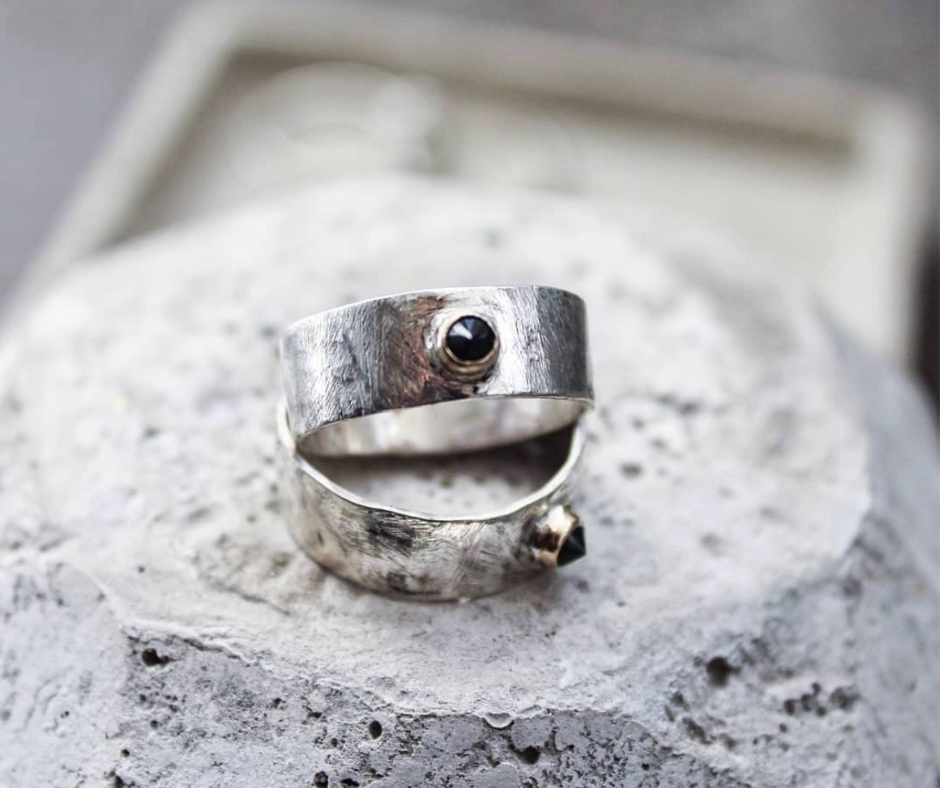We need your consent to the use of individual data so that you can show information about your interests, among other things. Click "OK" to give your consent.
01.09.2024 08:24
The Truth About Sustainable Silver in the Jewelry Industry
Sustainability is a term we hear everywhere these days, especially in the jewelry and fashion industries. At first glance, it sounds promising—and it should. But when we dig a little deeper, it's clear that the term is often misused as a flashy marketing hook. The same goes for “recycling.” While recycling is indeed an essential part of working with metals, this process has always been a norm in the metal industry. Many brands flaunt “recycled gold” or “recycled silver” as sustainable, which can either reveal a lack of understanding or be a classic case of greenwashing.
If we truly want to talk sustainability in silver and gold jewelry, we need to move beyond these shallow buzzwords and focus on meaningful practices. Let's explore what sustainability in silver really looks like and why it matters.
Silver Mining and Its OriginsSilver is rarely the main objective in mining operations. Instead, it is usually a byproduct of other mining activities, particularly for copper and gold. This means that much of the silver on the market arises from larger mining ecosystems, which are not always environmentally or ethically sound.
For brands truly committed to sustainability, the question becomes not "Is the silver recycled?" but rather, "How is it sourced to ensure it meets high ethical and environmental standards?" This is where ASM silver, or Artisanal and Small-scale Mining silver, steps in as a game-changer.
What is ASM Silver?ASM silver represents a different and more ethical approach to mining. It is gathered through artisanal and small-scale mining. This often involves communities working with limited resources but implementing more thoughtful and controlled mining practices. These practices frequently prioritize environmental protection and provide safer working conditions.
The Fairtrade Model and Fairever’s RoleA shining example of sustainable silver in action is the work of Fairever, a German processor leading the charge for responsible metals. The company sources ASM-certified silver from Fairtrade-certified mines, including those nestled in the Atacama Desert of Peru.
The silver they process doesn’t just shine on the surface; it represents a story of responsibility. This silver comes as a byproduct of Fairtrade-certified gold mining, ensuring that its origins are carefully regulated. The mines are frequently audited by third-party organizations to ensure compliance with ethical and environmental standards. These oversight measures extend to managing toxic waste—a major challenge in mining—and protecting surrounding water sources and communities.
Fairever spearheads this effort, collaborating with miners and refining their materials to uphold strict sustainability benchmarks. Their dedication allows jewelers to offer silver that truly upholds its promise of sustainability.
Upholding Environmental and Ethical StandardsWhat sets ASM silver and ethical mining practices apart is the comprehensive attention given to sustainability at all levels. Environmental concerns, such as preventing toxic waste from polluting rivers, are heavily monitored. Worker protections are also prioritized, which remains a severe issue in large-scale mining operations elsewhere.
Sustainability in this context isn’t just about the final product; it’s about the way the material is obtained, the communities it impacts, and the footprint it leaves behind. By supporting these practices, we can help shift the narrative in an industry often criticized for its harm to the planet and its people.
The Movement to Change the IndustryThe industry is slowly but steadily transforming, thanks to small groups of committed individuals and businesses. Jewelers and other stakeholders passionate about ethical sourcing aim to redefine the industry’s standards. Notably, even global names like Tiffany have become advocates of sustainable jewelry practices.
Suppliers like Fairever in Leipzig and Altro Carato in Milan are at the forefront of this movement. These companies work tirelessly to ensure sustainability without compromising on quality, proving that ethical jewelry doesn’t have to mean giving up the vibrancy and beauty of the final product. Instead, it adds a richer layer of meaning to the adornments we treasure.
Why Ethical Silver MattersSupporting sustainable silver isn’t just about buying jewelry. It’s about recognizing the human stories and environmental efforts behind these precious pieces. By choosing suppliers and jewelers who source certified sustainable silver and gold, we collectively back a future where the jewelry industry is known for positive change, not harm.
Next time you shop for jewelry, ask probing questions about where the materials come from and how they’re processed. Opt for brands like those partnered with Fairever or Altro Carato. Supporting such leaders in sustainable jewelry is a simple yet powerful way to make a difference—helping set a shining example of what genuine sustainability can achieve.
Show more




 Cookie - Settings
Cookie - Settings
